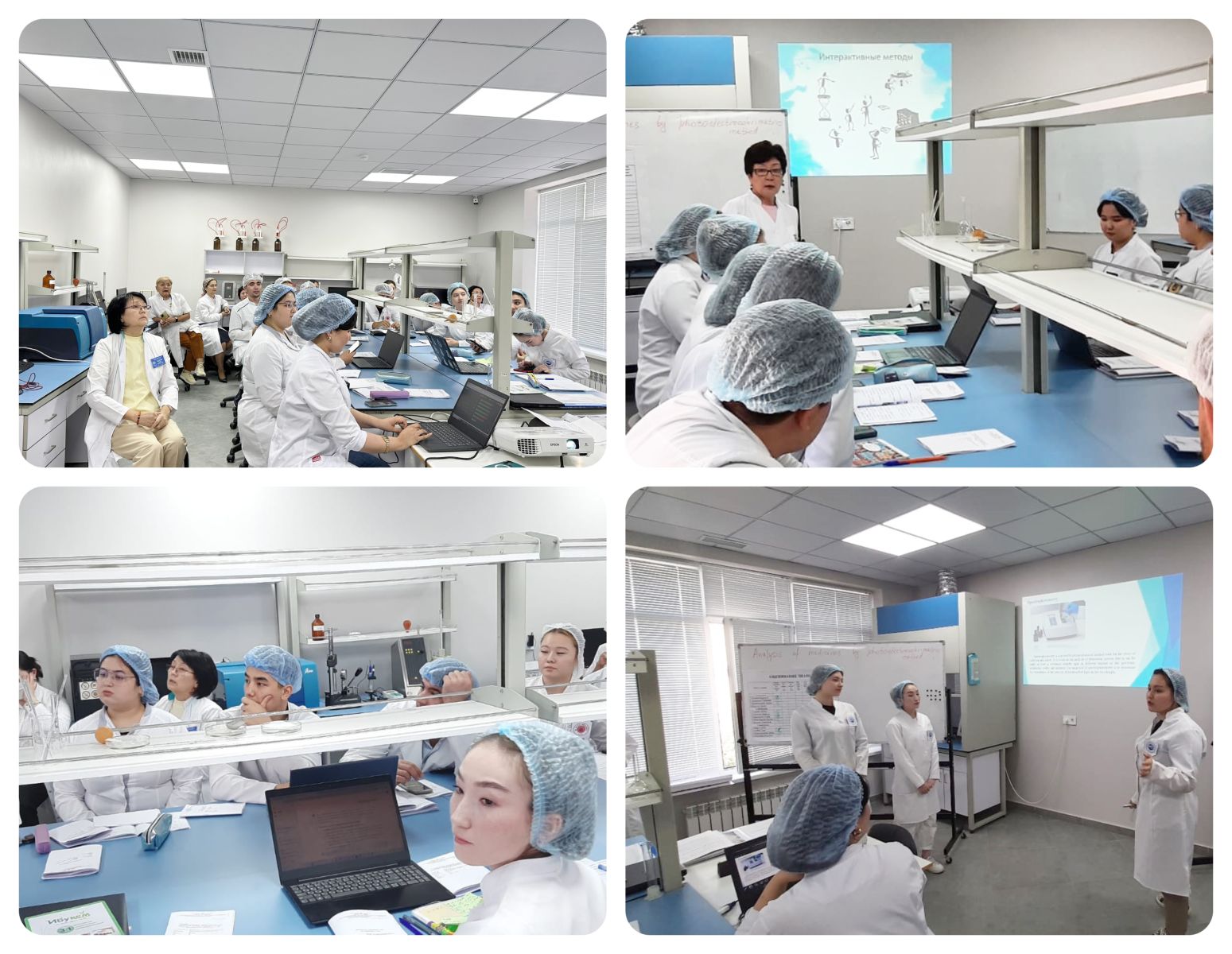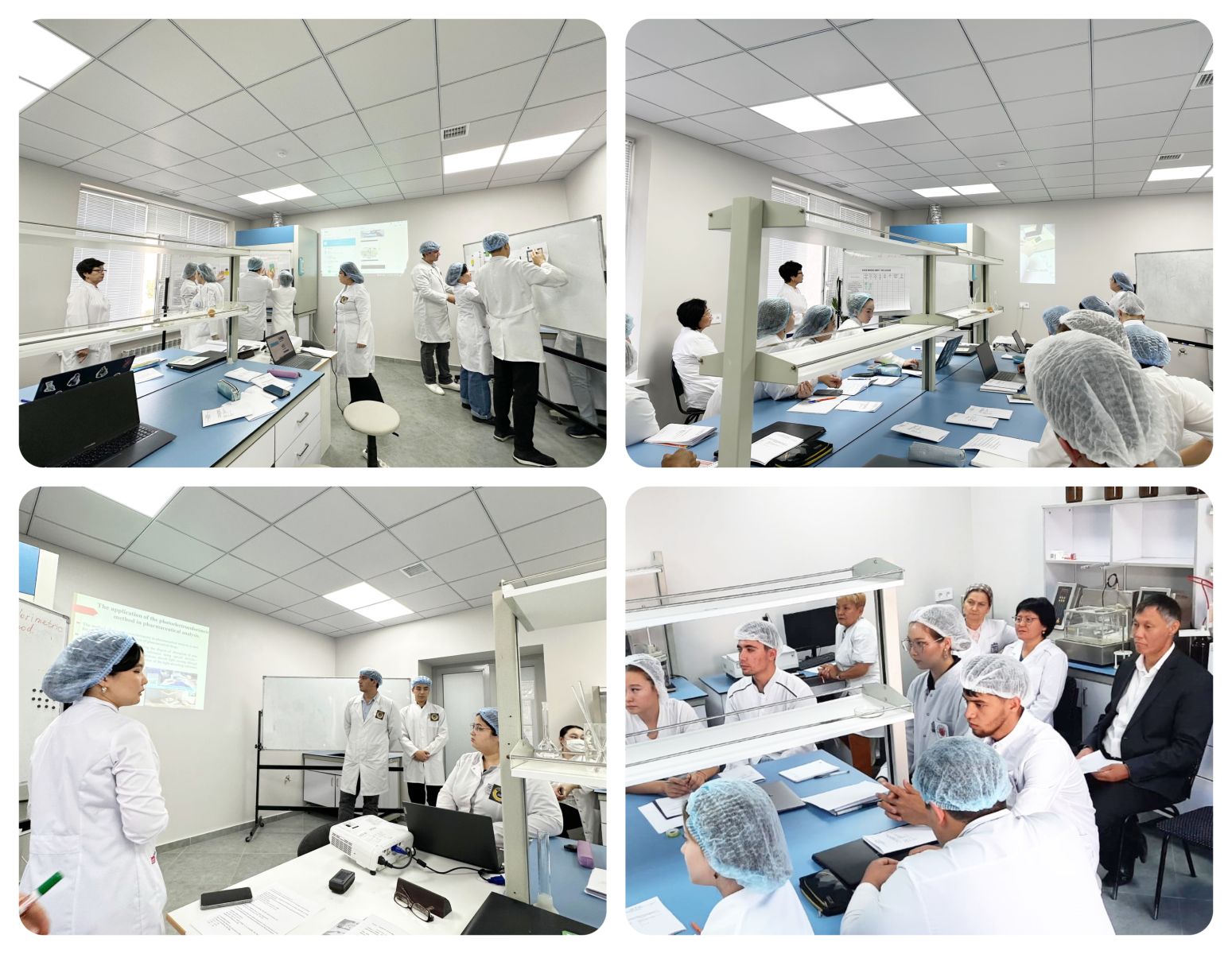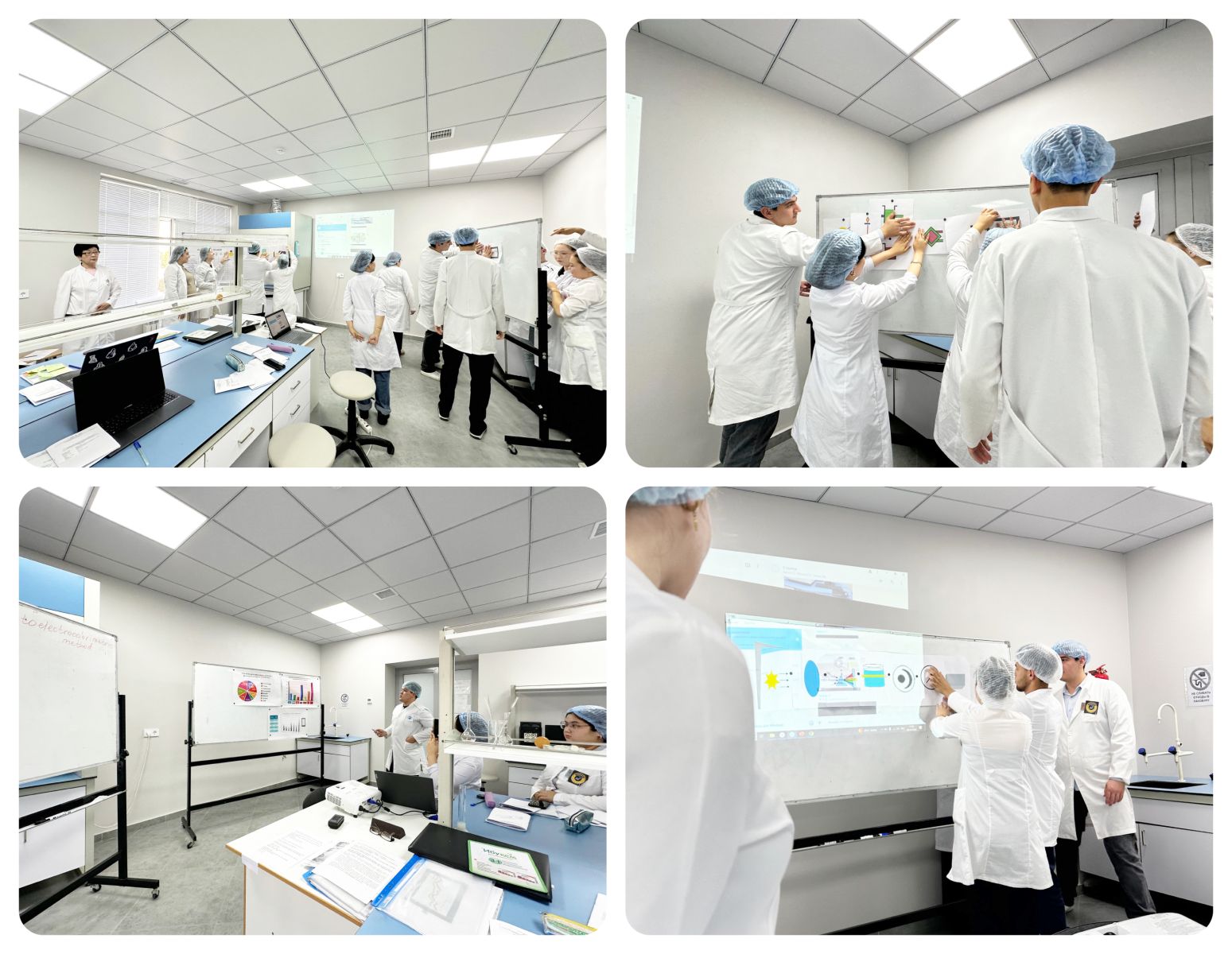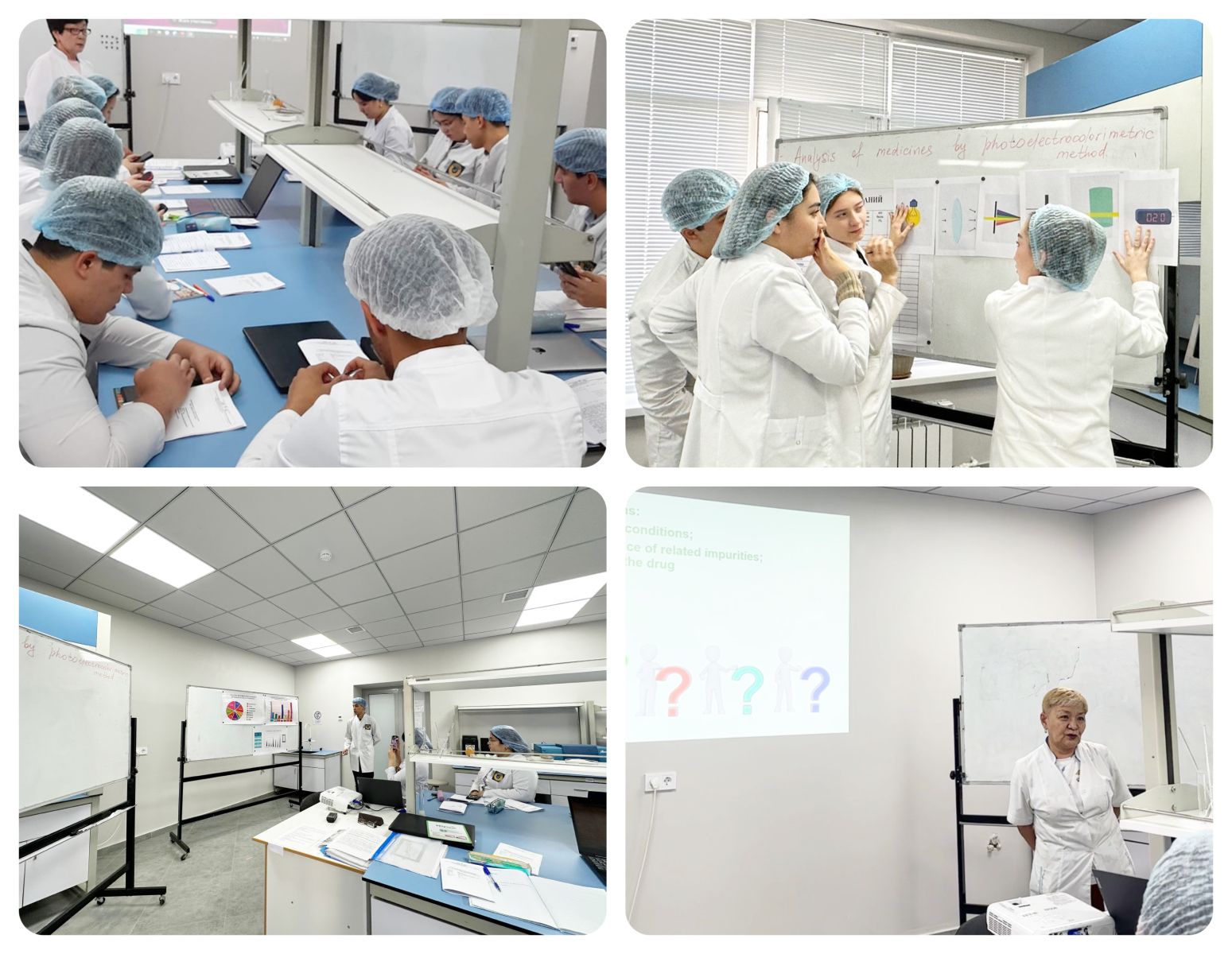Effectiveness of problem-based learning with elements of Open Labyrinth

The use of innovative pedagogical teaching technologies guarantees the formation of deeper knowledge in students, which will allow them to qualitatively perform the professional activities of an engineer-technologist. Active teaching methods (AMO) are focused on broader interaction of students not only with the teacher, but also with each other and on the prevalence of student activity in the learning process. For this purpose, the Department of Pharmaceutical and Toxicological Chemistry held an open laboratory lesson in English on the subject "Methods and Equipment for Pharmaceutical Analysis" for 4th-year students of the EP "Technology of Pharmaceutical Production" using active methods - PBL with elements of Open Labyrinth.

The students were faced with the goal of identifying and analyzing the purity of drugs using SF, FEC and IR spectroscopy methods, for which the study group was divided into three teams.
The laboratory lesson conducted using active methods ensured active educational and practical activities of students, forming their ability to independently find, creatively process and use the necessary information from various sources for identification and quantitative determination, thereby effectively conducting the laboratory part of the lesson.

To consolidate the educational material, students were offered the task of assembling the main elements of a spectrophotometer, photoelectrocolorimeter and IR spectrometer in the correct sequence. The methodology of situation-oriented learning included both individual (testing on the QZ platform) and group work of students using virtual production - work in the "Open labyrinth", the essence of which was to solve a problem in a virtual production environment. The use of situational tasks made it possible to focus students' attention on individual problems and expand the possibilities of the educational process, contributed to its optimization and increased students' motivation to study this subject.

The use of team- and situation-oriented learning is a good alternative to passive forms of conducting classes, develops communication skills, promotes better mastery of educational material, and promotes the development and improvement of both behavioral and professional skills.
 580 views
580 views
